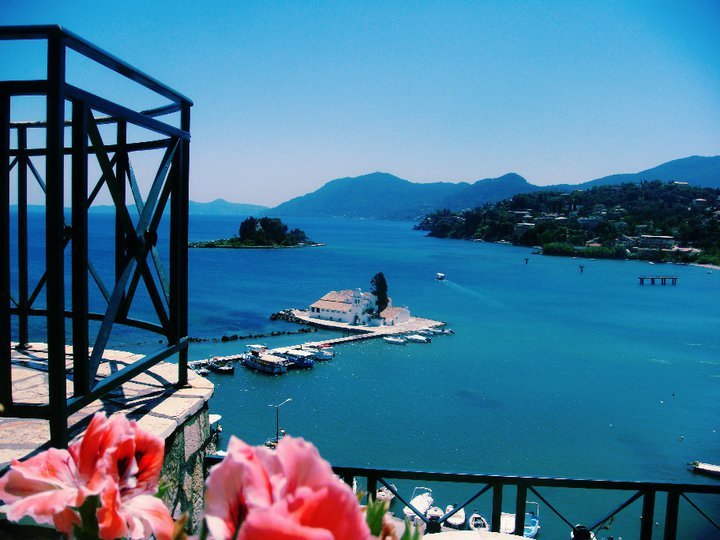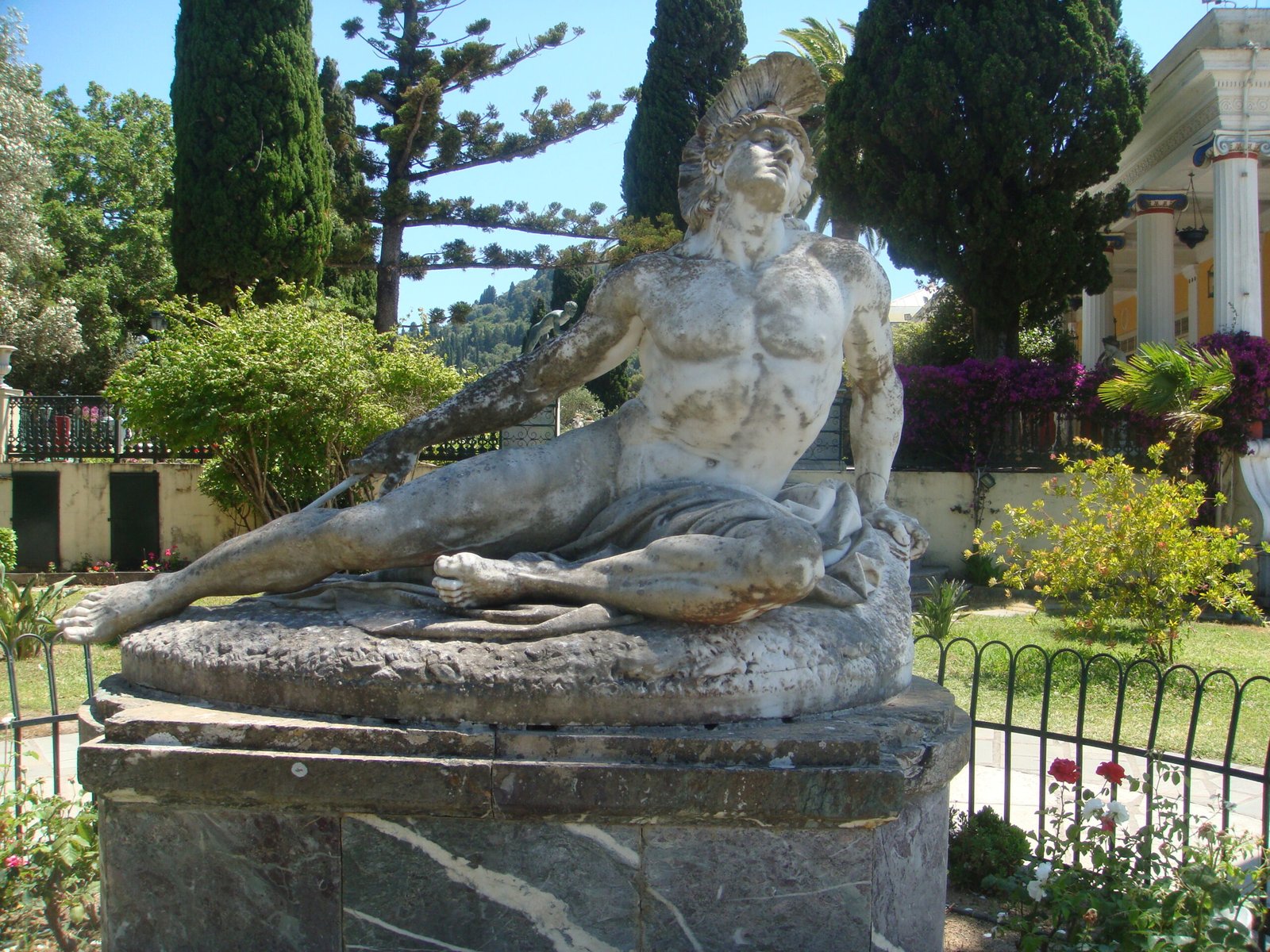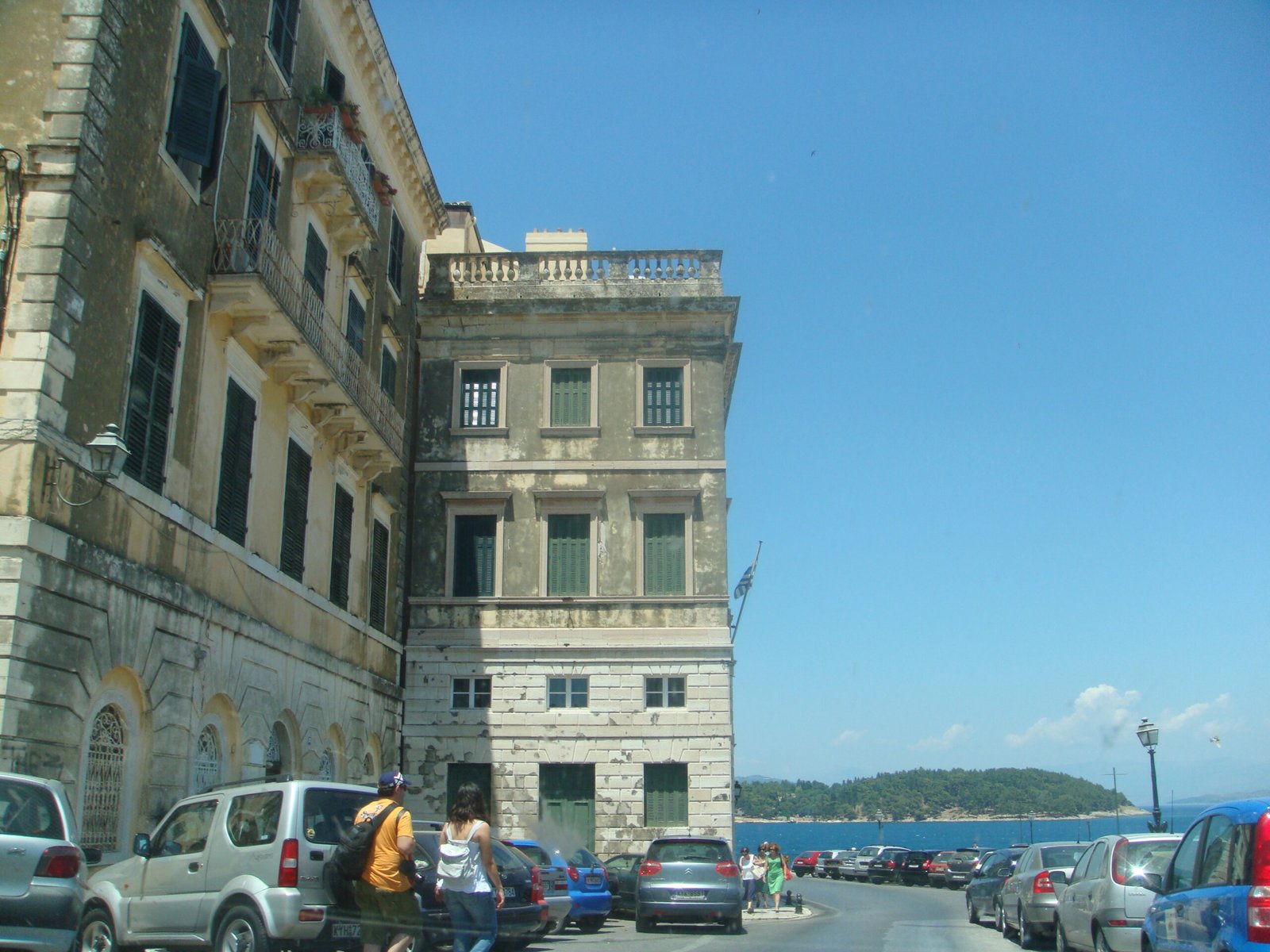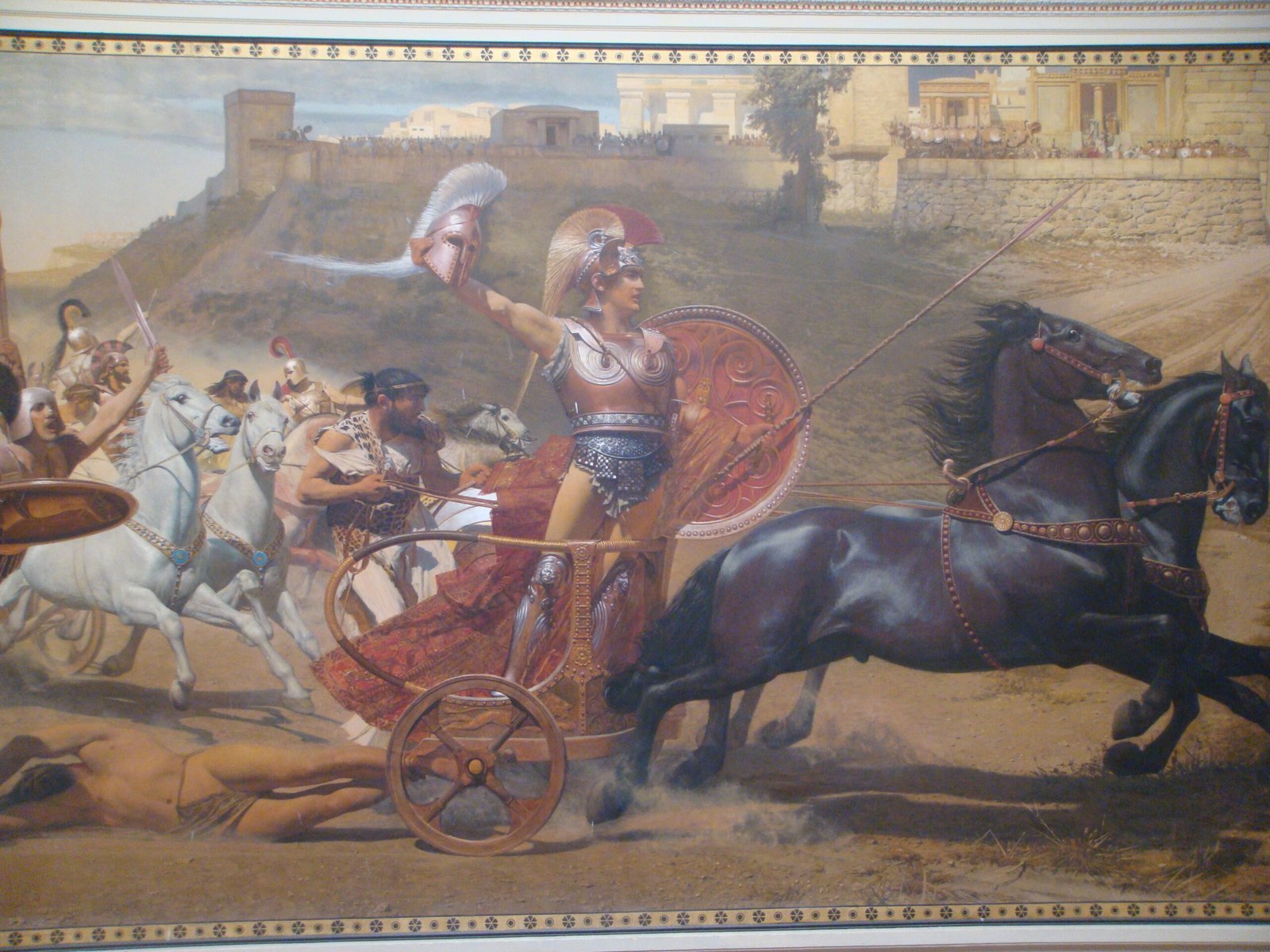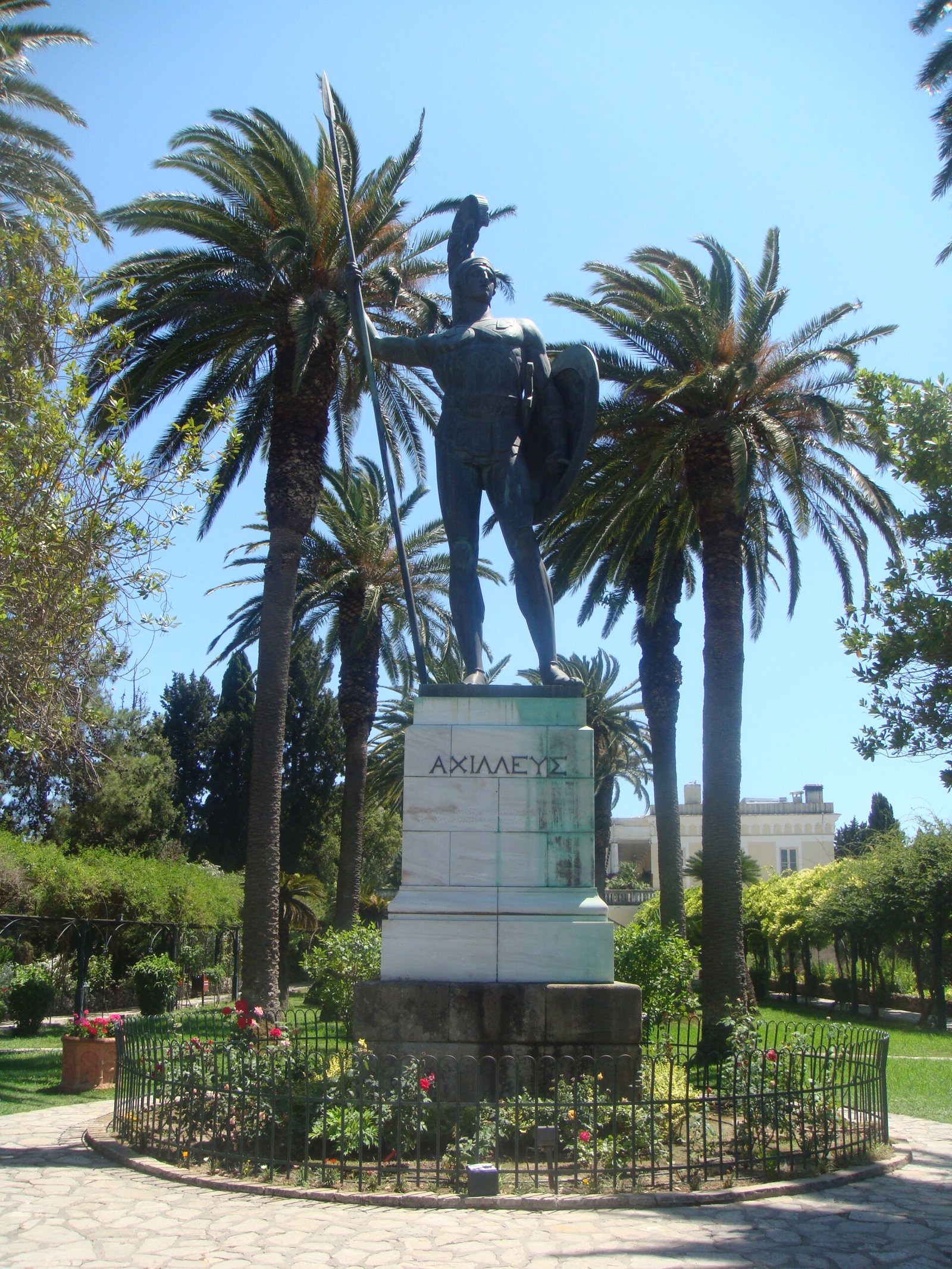Corfu (also known as Kerkyra) is one of Greece’s most beautiful and historically rich islands, located in the Ionian Sea, off the northwest coast of mainland Greece. Known for its lush landscapes, crystal-clear waters, Venetian architecture, and vibrant cultural history, Corfu has been a crossroads of civilizations, influenced by the Venetians, French, and British, all of which have left a lasting impact on the island.
Here’s a detailed overview of Corfu:
1. Natural Beauty and Landscape
- Green and Verdant: Unlike many of the drier Aegean islands, Corfu is famous for its green landscapes, covered in olive groves, cypress trees, and wildflowers. Its climate is mild and temperate, with rainy winters that foster its lush vegetation.
- Beaches: Corfu boasts an impressive variety of beaches, from long sandy stretches to secluded coves.
- Paleokastritsa: One of Corfu’s most famous and scenic beach areas, known for its crystal-clear waters, dramatic cliffs, and numerous sea caves.
- Glyfada: A popular sandy beach with excellent facilities, ideal for swimming and water sports.
- Sidari: Known for the Canal d’Amour, a unique rock formation and natural channel with legend stating that couples who swim through it will marry soon.
- Kassiopi: A picturesque fishing village with pebble beaches and stunning views of Albania across the sea.
2. Corfu Town (Kerkyra Town)
- Old Town: The island’s capital, Corfu Town, is a UNESCO World Heritage site, a blend of Venetian, French, and British architecture. Its narrow cobblestone streets, pastel-colored buildings, and vibrant squares evoke a romantic, old-world charm.
- Spianada Square: The largest square in Greece, where locals and tourists alike gather, bordered by elegant buildings and cafés.
- Liston Promenade: A beautiful arcade, built during the French occupation, inspired by Paris’ Rue de Rivoli. It is lined with cafés and restaurants.
- Old and New Fortresses: These two Venetian-built fortresses dominate Corfu Town, offering panoramic views of the city and sea. They once played a key role in defending the island from Ottoman invasions.
- Museums: The town also boasts several museums, such as the Museum of Asian Art, housed in the Palace of St. Michael and St. George, and the Byzantine Museum, located in the old town.
3. Historical and Cultural Significance
- Corfu has a rich history, shaped by various powers, most notably the Venetians, who ruled the island for over 400 years (from the 14th to the 18th century). This long period of Venetian influence is evident in the island’s architecture, culture, and even its cuisine.
- After the Venetians, the French briefly controlled Corfu in the early 19th century, followed by the British, who left their mark on the island’s educational and administrative systems. The island was united with Greece in 1864.
- Achilleion Palace: This stunning palace, located near the village of Gastouri, was built in 1890 by Empress Elisabeth of Austria (Sissi). The palace is dedicated to the mythical Greek hero Achilles, and its gardens are filled with statues and incredible views of the sea. It is a must-see for history enthusiasts.
4. Villages and Traditional Life
- Outside Corfu Town, the island is dotted with charming villages that have retained their traditional character. These villages often feature stone houses, narrow streets, and local tavernas where visitors can enjoy Corfiot hospitality.
- Pelekas: A village on a hill with stunning sunsets and great views of the island. Kaiser Wilhelm II is said to have visited Pelekas for its panoramic vistas.
- Lakones: A traditional village offering breathtaking views of Paleokastritsa and the surrounding countryside.
- Perithia: A ghost village, built in Byzantine times, which is one of the oldest settlements on Corfu and offers a glimpse into a past lifestyle.
5. Cultural Festivals and Music
- Easter Celebrations: Corfu is famous for its Easter celebrations, which are among the most spectacular in Greece. The town hosts religious processions, accompanied by philharmonic orchestras, the breaking of pottery (a unique Corfiot tradition), and vibrant celebrations.
- Music and Philharmonic Bands: Corfu has a long tradition of music, with its numerous philharmonic orchestras being one of the island’s most notable features. Many public celebrations and religious events are accompanied by live performances.
6. Cuisine
- Corfiot cuisine blends Greek flavors with Venetian and British influences. Some signature dishes include:
- Pastitsada: A Venetian-inspired dish made of slow-cooked beef (or sometimes rooster) in a rich tomato sauce with herbs, served over pasta.
- Sofrito: Veal or beef cooked in a garlic, parsley, and white wine sauce.
- Bourdeto: A spicy fish stew made with red pepper and onions, traditionally using scorpionfish.
- Kumquat: A small citrus fruit introduced by the British, which is now a symbol of Corfu. It’s used to make liquors, jams, and sweets.
7. Activities and Outdoor Adventures
- Hiking: The island has a variety of hiking trails, including the Corfu Trail, which runs the length of the island and offers a chance to explore its diverse landscapes, from olive groves to rocky coastlines.
- Water Sports: Corfu is an excellent destination for sailing, kayaking, snorkeling, and diving. The island’s clear waters and diverse marine life make it ideal for underwater exploration.
- Boat Trips: Visitors can take boat trips to nearby islets like Paxos and Antipaxos, known for their beautiful beaches, or explore the rugged coastline and sea caves.
8. Accessibility and Atmosphere
- Corfu is easily accessible via Corfu International Airport, which offers connections to Athens and numerous European cities, especially during the summer months.
- Ferries also connect Corfu to Italy, mainland Greece, and other Ionian Islands.
- Tourist Infrastructure: As a popular destination, Corfu offers a wide range of accommodations, from luxury resorts to quaint guesthouses, making it suitable for all kinds of travelers.
Why Visit Corfu?
- Cultural Blend: Corfu’s unique mix of Greek, Venetian, French, and British influences creates a rich cultural tapestry, offering something different from the more purely Greek islands.
- Natural Beauty: Its lush landscapes and diverse beaches make it a paradise for nature lovers and beachgoers alike.
- Historical Depth: From ancient ruins to Venetian fortresses and elegant palaces, Corfu’s history is tangible and accessible for visitors.
- Vibrant Town Life: Corfu Town is a lively hub with great shopping, dining, and nightlife options, combining historical charm with modern amenities.
In summary, Corfu is a jewel of the Ionian Islands, offering a harmonious blend of history, natural beauty, and rich cultural traditions. Whether you’re seeking adventure, relaxation, or a deep dive into history, Corfu delivers an unforgettable experience.
